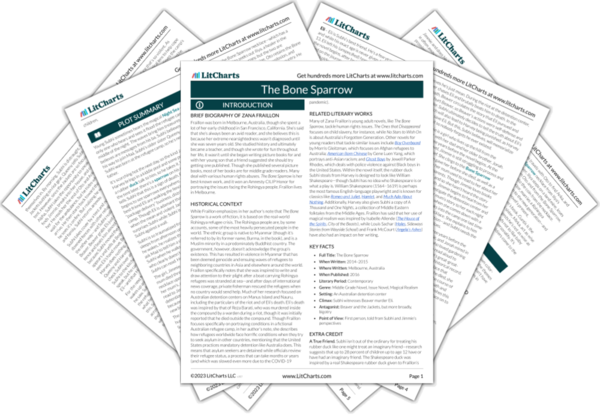Subhi again projects magic and wonder onto his world—but here, it’s not so delightful as the Night Sea, as it causes birds to fall from the sky. This may foreshadow that Subhi’s habit of looking at the world through a fantastical lens may have unintended negative consequences in the future. Then, when Queeny shares the visiting sparrow’s symbolism, it seems to confirm for Subhi that bad things are headed his way.
